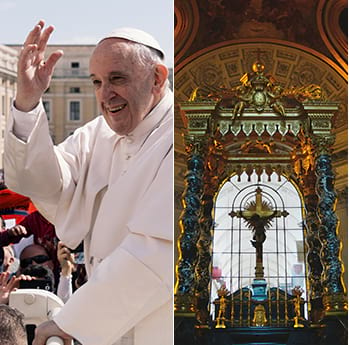He was cruelly killed on March 14, 1985, but his memory continues to be alive and a blessing to the people of the Northern Beqaa Valley, where he carried out his pastoral service and committed himself to social and economic improvement, giving all his strength for 10 years and finally, also his blood. At a time when the people of the Middle East continue to be terribly affected by conflicts and Christians are being driven to abandon their lands, it is right that the Society of Jesus should promote the cause of beatification of Fr. Nicolas Kluiters “on the grounds of martyrdom”[1].
Fr. Nicolas was born in Delft, Holland, in 1940, into a family of solid Catholic tradition, who did their honest work in the milk trade. His youthful inclination led him toward art. He took up painting and, in particular, drawing, in which he trained for several years, even beginning to teach in schools. But there was a call to religious life, fueled by some engaging experiences, such as attending Taizé, involvement with the Little Brothers of Charles de Foucault, the chiffonniers of the Abbé Pierre, a Benedictine monastery, etc. These led him to apply for admission to the novitiate of the Society of Jesus, which he entered in 1965. His artistic vocation was not suffocated, but became part of a larger call. As he would say, alluding to Peter who had become a “fisher of men,” he had felt called to become a “painter of men.”
In the post-colonial era, the end of the fifties, the Dutch Jesuits who offered themselves for the missions could no longer go to Indonesia. For this reason the Superior General directed them to the Middle East, to integrate with the predominantly French Jesuits in the region at the time.[2] The desire for the mission was so clear from the beginning for Nicolas that after a little more than a year he was sent to Bikfaya in Lebanon to complete his second year of novitiate there and he began to study the Arabic language.
In addition to his artistic inclination, Nicolas was a person who was attentive to the problems, the reality of life, and, in particular, the lives of simple people living in poverty. In Beirut, between 1968 and 1970, he attended the Lebanese School of Social Education with great commitment, graduating as a social worker.
This article is reserved for paid subscribers. Please subscribe to continue reading this article
Subscribe
Welcome to
La Civiltà Cattolica !
This article is reserved for paid subscribers
Please login or subscribe to continue reading this article
























